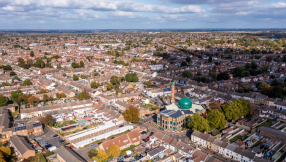Churches in Britain Targeted by Thieves and Con-Artists
The thieves have posed as contractors to gain access to church groups only to then strip lead off of church roofs and remove statues while some have taken metal fittings from the churches to sell for scrap.
In addition, even the bases of lightning conductors have been stolen, leaving various churches at risk during summer storms, explains The Church of England Newspaper.
In response to the shocking incidents, churches are being urged to rally the entire community to keep a look-out for possible thieves.
|AD|Christian insurance company Ecclesiastical is monitoring the trend, and has called on people to be vigilant. Chris Pitt, Ecclesiastical’s press officer said last week, “Parishioners should not be afraid to tell the vicar there are ‘builders’ at the church.”
Ecclesiastical has had 50 claims after thefts of lead, copper, and other metals from churches in the Bristol, Sheffield, and London areas in the past 3 months.
However, one churchwarden at St James’s Rotherham, which has been attacked three times in the past three years by thieves, did not believe that local people could do much to help fight these kinds of theft.
“The first time, we actually caught two people on the roof, and surrounded the church, but the police just told them to get down, and not to be naughty. It was unbelievable,” Derek Foster said, according to The Church of England Newspaper.
”Getting the lead off is hard work. But, the last time it happened, people living opposite said they hadn’t seen anything. I just think they don’t want to be involved; they are frightened of the repercussions.”
Churches in Norfolk have also been told to watch out for traders offering to carry out work that does not need to be done. The deceptive companies were revealed after various Anglican and Methodist churches across Norfolk were charged for work that was unnecessary. When the churches refused to pay, abusive phone calls were made to the church leaders.
Mr Parry told The Church of England Newspaper that the contractors had originally implied that they were from Norfolk County Council.
“It was only when I challenged them about our £640 bill, and said I would check with the Council, that they admitted they were independent.”
David Collinson, head of trading standards at the Council, said: “We know where the company concerned is based, and we are investigating the complaints made by these two churches with a view to possible prosecution.”













